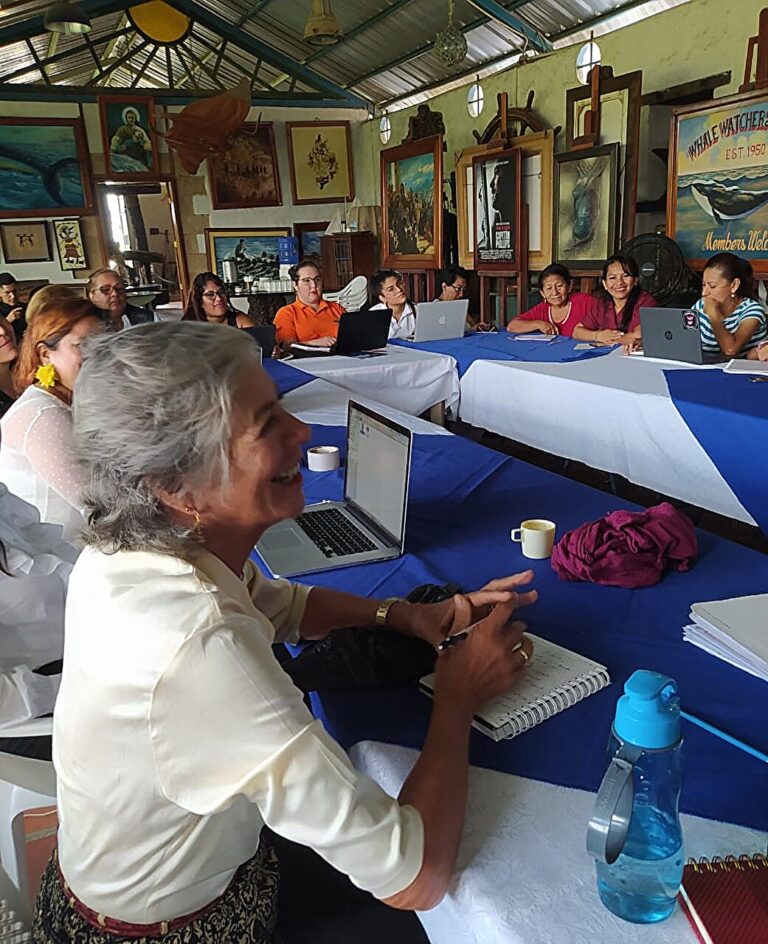
Workshop conducted. Credit: Pécot et al.
Gender-based social innovation is a critical process that interweaves social change with women’s entrepreneurship, empowerment and the evolution of women’s work in the tourism industry.
Why question the prevailing perceptions about the role and status of women entrepreneurs in an increasingly globalised and capitalist industry? Where does power, creativity and innovation really reside in tourism development?
Discussions about gender equality in tourism often revolve around the idea of restricting women to the role of service provider, perpetuating stereotypes of vulnerability and lack of agency.
Works by Mathias Pécot, Carla Ricaurte-Quijano, Catheryn Khoo, Marisol Alonso Vazquez, Domenica Barahona-Canales, Elaine Chiao Ling Yang, and Rosalie Tan challenge these notions and introduce more inclusive narratives.
The study has been published in the journal Tourism Management.
Coalitions for Gender Equality in Tourism have emerged as platforms for women’s empowerment, but designing gender-focused projects and trainings comes with challenges in terms of meaning, practice and power relations.
The authors conducted 33 interviews and five digital marketing training workshops with women entrepreneurs in Ecuador and Mexico, and these conversations provide valuable insights.

The workshop maintained a practical and collaborative atmosphere. Credit: Pécot et al.
Overcoming Rough Seas
This study highlights the individual and relational empowerment that often occurs beyond planned interventions while confronting structural challenges.
Individual empowerment: Women entrepreneurs in Ecuador and Mexico recount their transformational trajectories, including going into international business, obtaining specialized degrees, and innovating with new materials and technologies. These testimonies reveal self-reliance, awareness of one’s situation, and confidence in one’s capabilities. Relational empowerment: Beyond internal change, relational empowerment emerges from interactions with family, community leaders, colleagues, and intermediaries involved in tourism development. It is based on values such as trust, emotional support, time management, and decision-making control. Structural constraints: Entrepreneurs face gender discrimination, domestic violence, social expectations, and limited access to resources. Punitive policies limit participation in the tourism economy, especially in informal work, highlighting multidimensional challenges that go beyond individual capabilities.
From Empowerment to Gender-Based Social Innovation
Gender social innovation is a disruptive process that recognises women’s entrepreneurship in tourism as a new type of business and promotes gender-focused partnerships that organise and develop others against structural constraints. Furthermore, women’s networks and cooperatives provide spaces to foster broader social change.
Professor Catherine Khoo emphasised: “This research changes how we think about the role of women in tourism – it’s not just about providing goods and services, but recognising and supporting women as innovative contributors who can shape and lead the diverse tourism landscape.”
Further information: Mathias Pécot et al., “From women’s empowerment to women’s empowerment: A gender-based social innovation framework for tourism-led development initiatives,” Tourism Management (2024). DOI: 10.1016/j.tourman.2024.104883
Courtesy of Littoral Higher Technical University
Source: Gendered Social Innovation Framework for Tourism-Led Development Initiatives (July 9, 2024) Retrieved July 9, 2024 from https://phys.org/news/2024-07-gendered-social-framework-tourism.html
This document is subject to copyright. It may not be reproduced without written permission, except for fair dealing for the purposes of personal study or research. The content is provided for informational purposes only.

